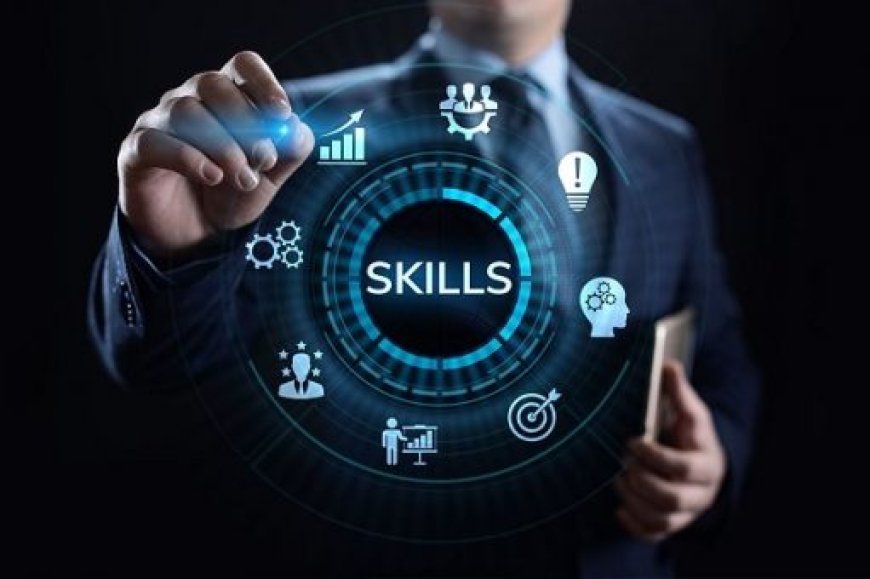How Microsoft is driving tech skills’ access

Africa is a future hub for tech skills, with a wealth of young talent to draw on driving greater access to digital skills and technology.
It is crucial to develop a new generation of tech professionals who will enable the continent to compete in the global digital economy and drive innovation on the continent.
In an increasingly digital world, the importance of equipping Africa’s youth with digital skills simply cannot be overstated.
It’s a much-quoted statistic that as the world’s youngest continent, Africa will make up one-fifth of the total workforce and one-third of the total youth workforce in the world by 2030.
Country Manager, Microsoft Nigeria, Ola Williams said Africa can seize the moment and harness its youth to become a global hub for tech skills, but lamented that the digital skills gap looms large.He said that developing the skills needed to compete in the global digital economy is critical. He reiterated the need to focus our skilling efforts on three key areas to fulfil the vision of Africa as a tech hub such as building digital literacy, giving entrepreneurs the skills to thrive, and driving the AI skills set needed to embrace the full potential of this technology.According to him, digital literacy must be the starting point as technology swiftly transforms the workforce landscape, employers globally are looking for workers with enhanced digital skills.
World Bank reports state that most of the demand for these digital skills will come from occupations outside of ICT specialisations, driven by businesses embracing digital technologies.
According to him it’s anticipated that 70 per cent of this demand will be for foundational skills, followed by 23 percent for intermediate skills outside the ICT sector.
Acknowledging the importance of digital skills, countries across the continent are developing plans to build the competencies needed for the global digital economy. The government of Nigeria is actively investing in digital skills development to empower its youth and enhance its digital ecosystem, but the challenge is significant to reach our youth and upskill them.
Recognising the need to broaden access to digital skills development programs, Williams said Microsoft launched the Global Skills Initiative in 2021, combining resources from LinkedIn learning, GitHub and Microsoft Learn. The program, according to him, has helped 80 million job seekers worldwide access digital skills, and over 196,000 learners in Nigeria have been engaged thus far.
Microsoft has also partnered with the African Development Bank (AfDB) and the Nigerian Government to launch the Digital Nigeria eLearning Platform.
He said: “One-year post-launch 125,000 enrolled learners were on the platform across the country, while 111,000 course completions were accomplished in either Basic, Intermediary, Advanced digital skills or entrepreneurship and soft skills. To date, Microsoft’s all-up skilling initiatives in Nigeria have reached 1,164,815 people, while 89,946 Microsoft certifications have been completed”
Startup and SME skilling must be the second area of focus. Though 10 to 12 million African youth join the workforce every year, just 3 million jobs are created. Helping to support and sustain entrepreneurship will go a long way to solving the employment challenge. Beyond employment, small businesses and startups are often at the forefront of innovation, providing solutions to Africa’s most pressing societal challenges.
According to the AfDB, around 22 per cent of Africa’s working-age population are starting new businesses – the highest rate in the world. The African tech startup ecosystem is becoming an important source of employment.
Microsoft is partnering with the government of Nigeria to accelerate the country’s digital transformation, with a commitment to upskilling five million people in Nigeria to create over 27,000 new digital jobs, while collaborations with local telco providers like MTN are providing 4 million Nigerians with free tech-skilling content.
Microsoft is also partnering with Flapmax to create the FAST Accelerator program, helping startups scale rapidly and access new growth opportunities by bringing together cutting-edge technologies, holistic skills development and technical support, as well as business development strategies.
The empowerment of Africa through digital skills and AI technology is not just a vision but a strategic reality in which Microsoft is deeply invested. By bridging the digital divide and fostering innovation, we are laying the foundation for a brighter future where African talent can shine on the global stage. Together, we can transform challenges into opportunities and ensure that no one is left behind in this digital revolution he reiterated.
How Microsoft is driving tech skills’ access - The Nation Newspaper (thenationonlineng.net)









